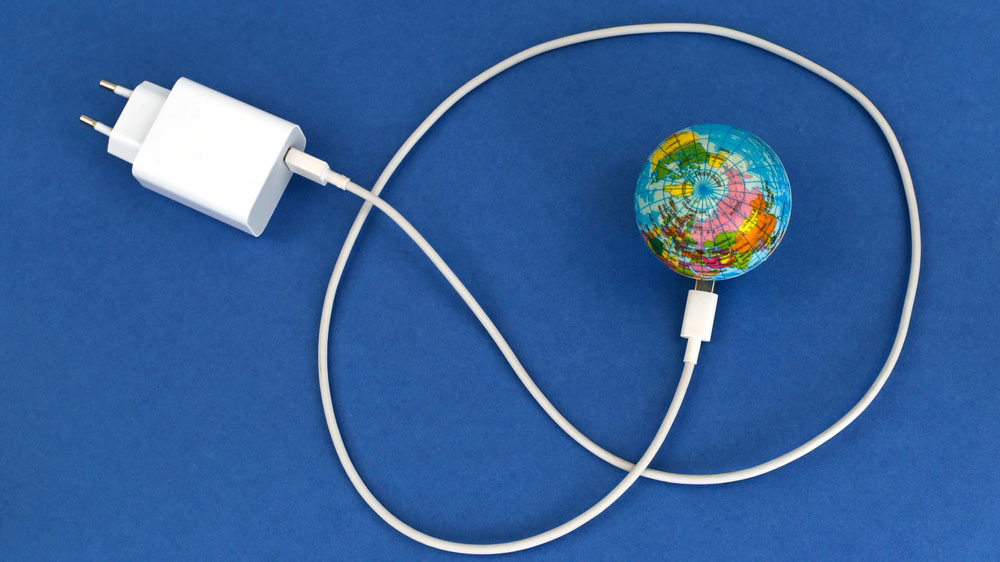What if we hit “pause”?
We live in a world where everything moves quickly. Constant notifications, work emails intruding during dinner, social media grabbing our attention first thing in the morning… Our days are marked by a continuous flow of information that leaves us little respite. But in being so connected to others and the world, do we end up disconnecting from ourselves? What if the secret to lasting well-being lay in our ability to regularly unplug? Taking a step back, breathing, listening to our deep needs… Disconnecting to reconnect with yourself is not a luxury; it’s a necessity to regain inner balance. In this article, let’s explore why and how hitting “pause” can help us reconnect with ourselves.
1- Why is it so hard to disconnect?
Ultra-connectivity has become the norm. Remote work, social media, instant messaging… we are constantly available, and our brains have adapted to this continuous stimulation. Each notification triggers a little dopamine shot, the neurotransmitter of pleasure, making us increasingly addicted to our screens.
But what seems harmless has deep consequences on our well-being. Overconsumption of information exhausts our brains, reduces our concentration, and raises our stress levels. Worse still, this hyperconnectivity cuts us off from our inner world. When was the last time we took the time to really feel our emotions, without being distracted by a screen?
Disconnecting to reconnect with yourself means reclaiming quality time. It’s reconnecting with our desires, sensations, and intuition. It’s relearning to listen to ourselves, plain and simple.
2- The Benefits of a “Digital Detox” on Emotional Well-Being
Taking a step back from digital devices and external demands, even for just a few hours a day, can transform our relationship with ourselves. Here are some of the benefits of regular disconnection:
- Less stress, more serenity
Studies show that continuous exposure to screens, particularly before bedtime, increases stress and sleep disorders. By cutting off notifications and reducing time spent on social media, we lighten our minds and calm our nervous system. - Better sleep
The blue light from screens interferes with our production of melatonin, the sleep hormone. By disconnecting at least one hour before bed, we promote deeper, more restorative sleep. - Reconnecting with your body
Taking a break, breathing, moving… When we’re not glued to a screen, we can better listen to the needs of our body: a walk, a yoga session, a warm bath, a moment of meditation… These simple moments become more precious. - Boosted creativity
Our best creative sparks often arise in silence and boredom. When we stop filling every moment with external stimuli, our imagination awakens, and our minds wander. - More authentic relationships with others
Disconnecting from the virtual world allows us to reconnect genuinely with the people around us. Conversations become richer, deeper, and the quality of relationships improves.
3- How to Disconnect Without Frustration
If the idea of turning off your phone for several days feels insurmountable, don’t worry! Disconnecting doesn’t mean completely abandoning the digital world, but using it more consciously and in balance. Here are some ideas to make it easier:
- Set “off” moments in your day
Designate screen-free times: in the morning when you wake up, during meals, before sleeping… Even just 30 minutes without your phone can make a big difference. - Activate airplane mode or “Do Not Disturb”
Simply turning off notifications lightens your mental load. Try checking your messages only at set times, instead of responding to every notification in real time. - Plan screen-free activities
Replace the endless scrolling of social media with activities that nourish you: reading, drawing, writing, exercising, cooking… Do something that feels good, without the interference of digital devices. - Practice mindfulness
When you walk, eat, breathe… be fully present with what you’re doing, without a screen in the background. This will help you cultivate a more intimate relationship with yourself. - Take a real digital break regularly
A weekend without your phone, an evening without the internet, or even a whole day without screens… Define moments where you give yourself a true “digital detox” to recharge your mental and emotional batteries.
Conclusion : Disconnecting to Reconnect with Yourself: An Invaluable Gift
Disconnecting isn’t about depriving yourself; it’s about finding yourself again. It’s offering your mind a space of calm, breathing, and introspection. In a society where everything speeds up, and attention has become a rare and precious resource, it’s essential to learn how to protect it.
What if tonight, you turned off your phone an hour earlier to savor a moment just for you? You could rediscover the simple pleasure of soothing silence, an engaging book, or a thought that blossoms freely…
So, are you ready to hit “pause” and reconnect with what truly matters?
Sources :
- Harvard Business Review – “The Impact of Digital Overload on Mental Health”
👉 https://hbr.org - Psychology Today – “Why Unplugging is Essential for Mental Well-Being”
👉 https://www.psychologytoday.com - National Sleep Foundation – “Screens and Sleep: The Science Behind It”
👉 https://www.sleepfoundation.org - The Guardian – “How Social Media Affects Our Brain Chemistry”
👉 https://www.theguardian.com - Scientific American – “The Neuroscience of Taking Breaks”
👉 https://www.scientificamerican.com


